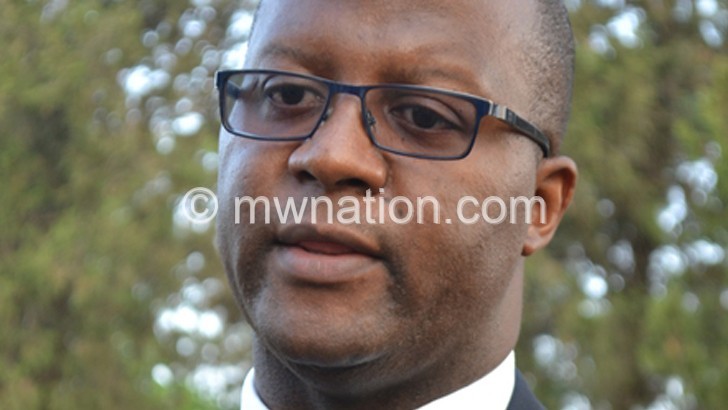Atupele dodges DPP, 2019 issues
United Democratic Front (UDF) president Atupele Muluzi yesterday failed to decisively explain the status of his party’s relationship with the governing Democratic Progressive Party (DPP) ahead of the 2019 Tripartite Elections.
Muluzi, who is Minister of Health and Population Services in President Peter Mutharika’s Cabinet, said an electoral alliance was a process; hence, there were certain stages to take into account before a resolution is made on whether to contest the elections individually or go into partnership.
He was speaking in an interview on the sidelines of a UDF rally he addressed at Nyambadwe Primary School ground in Blantyre where he also welcomed back some of the party’s former legislators and Cabinet ministers in Clement Stambuli and Yusuf Mwawa.

UDF and DPP became bedfellows soon after the May 20 2014 Tripartite Elections after Mutharika drafted Muluzi into his first Cabinet. Muluzi has been maintained since then.
Said Muluzi during the interview: “Politics is full of changes. Since 1994, we have seen a number of political alliances that have come and gone. So, it depends very much on the circumstances of the time and the thinking between the parties, but we will arrive at that point when we get there.”
However, his statement seemed to contradict his Southern Region governor McDonald Symon who told the rally that Muluzi’s acceptance to work with the DPP was a way to groom him for 2019 elections, apparently suggesting Muluzi would contest as presidential candidate again after failing on his first attempt in 2014 when he finished a distant fourth.
During the three years of the two parties’ political marriage, there have been some misgivings on the alliance’s sustenance with some UDF senior members such as Lucius Banda, a former leader of the party in Parliament and Balaka North legislator, explicitly defying the move.
But yesterday Muluzi said being a sovereign party, a convention would soon be called for members to decide in terms of the direction to take and as a leader he could not dictate but “move to consolidate the supporters”.
Both DPP publicity secretary Francis Kasaila and director of elections Kondwani Nankhumwa were not available yesterday to comment on the issue, but in an earlier interview, Nankhumwa told The Nation the two parties were in a “gentleman’s agreement”.
To strengthen their relationship, Muluzi took his members of Parliament (MPs) from the opposition to government benches in the 193-member National Assembly.
But Muluzi also disputed suggestions that by entering into a working relationship with the DPP, he had sold the party; arguing he accepted to help in running the country because he wanted unity and development.
Muluzi, whose father Bakili Muluzi ruled the country between 1994 and 2004 as the first post-independence multi-party Head of State, said UDF was strong and he could not sell it at any cost.
He said: “We have been working with the party members at grassroots since January this year, I have been telling them that we are still together and strong. Working with the DPP does not mean we sold the party. I only accepted a request by President Peter Mutharika to assist in running the country.”
While citing as an example Barrack Obama who after winning the United States of America (USA) elections appointed his party candidacy opponent Hilary Clinton as Secretary of State, Muluzi said the world was changing and it was high time Malawian politicians started practising civilised politics.
UDF’s strength in Parliament has been dwindling since the 2004 General Elections. From 84 seats in 177-member Parliament in the first post-independence multi-party elections in 1994 to 91 MPs in 1999 when the number of constituencies rose to 193, the party got 49 in 2004, 16 in 2009 and 15 in 2014. n





